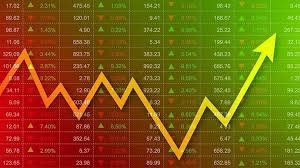In today’s rapidly evolving world, energy efficiency is at the forefront of discussions regarding sustainability and cost-effectiveness. Among the key components that facilitate this efficiency in heating, ventilation, and air conditioning (HVAC) systems are heat exchangers. Understanding the role of a heat exchanger manufacturer is crucial for grasping how these devices contribute to overall system performance and energy savings.
Understanding Heat Exchangers
Heat exchangers are devices designed to transfer heat between two or more fluids without them mixing. They play a vital role in various applications, including HVAC systems, where they help regulate temperature, improve energy efficiency, and maintain indoor air quality. By transferring heat effectively, these devices minimize energy consumption, which is particularly important in commercial and residential buildings.
Types of Heat Exchangers
There are several types of heat exchangers commonly used in HVAC systems:
- Shell and Tube Heat Exchangers: These are widely used due to their robust construction and high efficiency. They consist of a series of tubes, one set carrying the hot fluid and the other carrying the cold fluid. The heat transfer occurs through the tube walls.
- Plate Heat Exchangers: These consist of multiple thin plates that create channels for the fluids. This design enhances heat transfer due to a larger surface area and is particularly effective for low to medium-temperature applications.
- Air-Cooled Heat Exchangers: These are commonly used in HVAC systems where cooling is required. They transfer heat from the refrigerant to the air outside, relying on ambient air to dissipate heat.
- Double-Pipe Heat Exchangers: These consist of two concentric pipes where one fluid flows through the inner pipe while the other flows through the outer pipe. They are simpler in design and effective for small-scale applications.
- Each type has its advantages and is selected based on specific operational requirements and constraints.
The Role of Heat Exchangers in HVAC Efficiency
1. Improved Energy Transfer
The primary function of a heat exchanger is to transfer heat efficiently. In HVAC systems, this means transferring heat from the indoor environment to the outdoor environment or vice versa. A well-designed heat exchanger minimizes heat loss during this process, allowing for more effective heating and cooling. This efficiency is crucial for reducing energy consumption and lowering utility bills.
2. Enhanced System Performance
Heat exchangers are critical for the optimal performance of HVAC systems. They help maintain consistent temperatures, ensuring that spaces remain comfortable for occupants. By effectively transferring heat, these devices reduce the workload on compressors and fans, which can extend the lifespan of these components and reduce maintenance costs. When selecting a heat exchanger manufacturer, it’s essential to choose one that specializes in designing products tailored for optimal performance in HVAC applications.
3. Reduction of Carbon Footprint
By enhancing the efficiency of HVAC systems, heat exchangers play a vital role in reducing greenhouse gas emissions. Efficient systems consume less energy, which translates to lower carbon emissions. This reduction is particularly significant in commercial buildings, which often have high energy demands. Many heat exchanger manufacturers are now focusing on creating eco-friendly products that comply with environmental regulations, contributing to a more sustainable future.
4. Versatility in Applications
Heat exchangers can be used in various HVAC configurations, including centralized and decentralized systems. Their versatility makes them suitable for diverse applications, from residential homes to large commercial buildings. Whether used in air conditioning units, heat pumps, or boilers, heat exchangers adapt to different operational requirements, making them indispensable in HVAC systems.
5. Cost Savings Over Time
While investing in high-quality heat exchangers may require an upfront cost, the long-term savings are substantial. By improving energy efficiency, these devices lead to reduced energy bills, making them a cost-effective choice for both residential and commercial HVAC systems. Additionally, they contribute to lower maintenance costs by reducing wear and tear on other system components.
6. Integration with Renewable Energy Sources
As the world shifts toward renewable energy, heat exchangers play a crucial role in integrating these sources into existing HVAC systems. For example, solar thermal systems utilize heat exchangers to transfer heat collected from the sun to water used for heating. This integration enhances the overall efficiency of HVAC systems and supports the transition to greener energy solutions.
Selecting the Right Heat Exchanger Manufacturer
When choosing a heat exchanger manufacturer, it’s important to consider several factors:
- Experience and Expertise: Look for manufacturers with a proven track record in designing and producing high-quality heat exchangers. Their experience in the HVAC industry can be invaluable in selecting the right product for your needs.
- Product Quality: Quality is paramount when it comes to heat exchangers. A reliable manufacturer will use durable materials and adhere to industry standards to ensure the longevity and efficiency of their products.
- Customization Options: Different HVAC systems have varying requirements. A good manufacturer should offer customization options to meet specific operational needs. This flexibility ensures that the heat exchanger functions optimally within the system.
- Technical Support: Choose a manufacturer that provides comprehensive technical support. This includes assistance with installation, maintenance, and troubleshooting, which can help maximize the performance of the heat exchangers.
- Sustainability Practices: As sustainability becomes increasingly important, selecting a manufacturer committed to environmentally friendly practices can enhance your HVAC system’s efficiency while also contributing to a greener future.
Innovations in Heat Exchanger Technology
The field of heat exchangers is continually evolving, with manufacturers investing in research and development to create more efficient and sustainable solutions. Some recent innovations include:
- Enhanced Surface Technology: Manufacturers are developing heat exchangers with improved surface designs that increase the heat transfer area. This innovation allows for more effective heat exchange with smaller units, contributing to overall system compactness and efficiency.
- Compact Designs: As space becomes a premium in both residential and commercial buildings, manufacturers are creating more compact heat exchangers. These designs deliver the same performance as larger units while occupying less space.
- Smart Heat Exchangers: Integrating IoT technology allows heat exchangers to communicate with HVAC systems, enabling real-time monitoring and optimization. These smart devices can adjust their performance based on demand, further enhancing energy efficiency.
- Biomimetic Designs: Some manufacturers are drawing inspiration from nature to create more efficient heat exchangers. By mimicking natural processes, they develop designs that maximize heat transfer and minimize energy consumption.
Conclusion
Heat exchangers play a vital role in enhancing the efficiency of HVAC systems. As the demand for energy-efficient solutions grows, understanding the importance of selecting a quality heat exchanger manufacturer becomes crucial. From improving energy transfer and system performance to reducing carbon footprints, heat exchangers are integral to modern HVAC solutions.
By choosing the right manufacturer and keeping an eye on the latest innovations, businesses and homeowners can ensure that their HVAC systems operate at peak efficiency, leading to significant energy savings and a reduced environmental impact. As we continue to focus on sustainability, heat exchangers will remain a key player in the quest for a more energy-efficient future.



